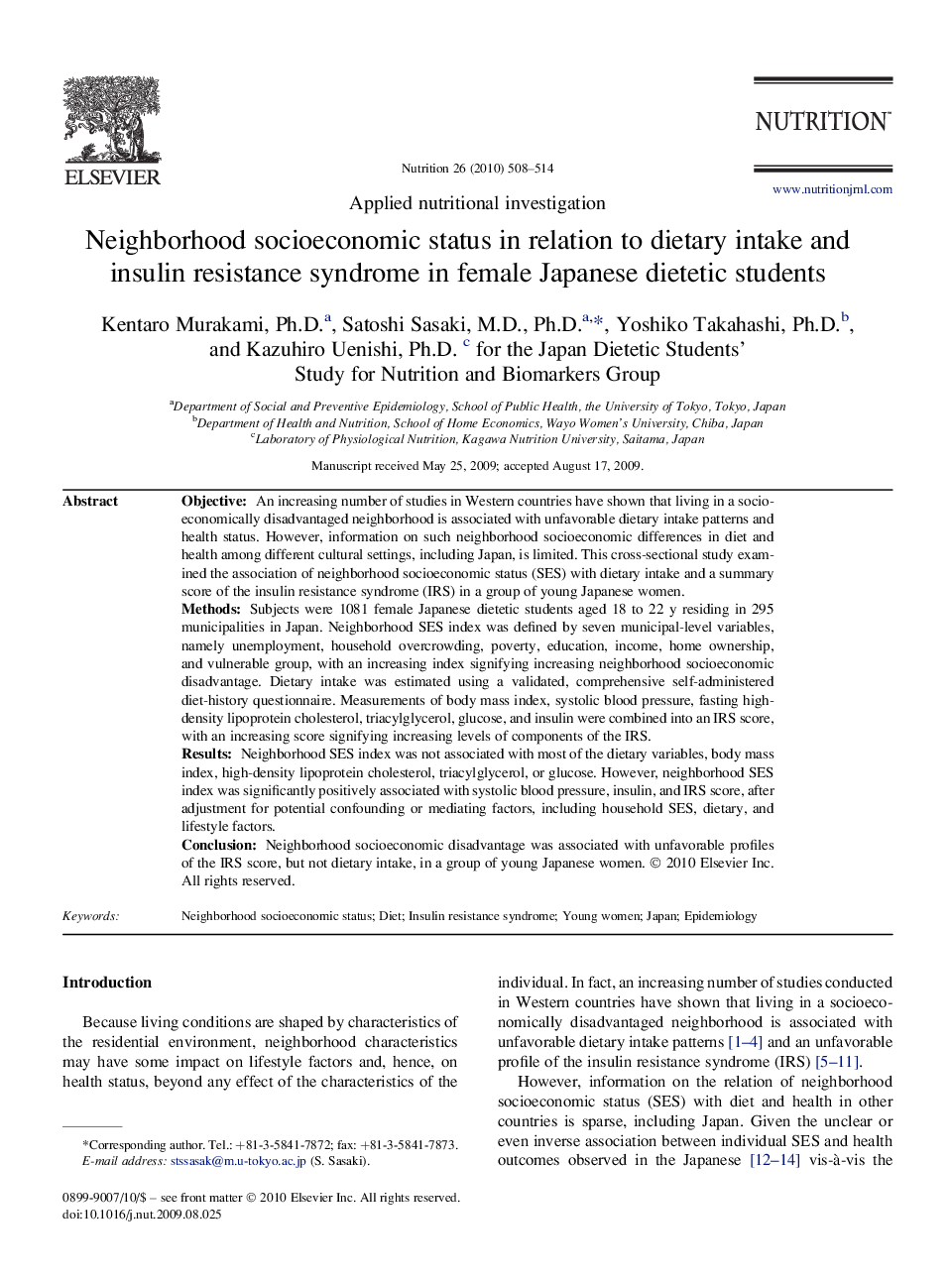| کد مقاله | کد نشریه | سال انتشار | مقاله انگلیسی | نسخه تمام متن |
|---|---|---|---|---|
| 3276992 | 1208599 | 2010 | 7 صفحه PDF | دانلود رایگان |

ObjectiveAn increasing number of studies in Western countries have shown that living in a socioeconomically disadvantaged neighborhood is associated with unfavorable dietary intake patterns and health status. However, information on such neighborhood socioeconomic differences in diet and health among different cultural settings, including Japan, is limited. This cross-sectional study examined the association of neighborhood socioeconomic status (SES) with dietary intake and a summary score of the insulin resistance syndrome (IRS) in a group of young Japanese women.MethodsSubjects were 1081 female Japanese dietetic students aged 18 to 22 y residing in 295 municipalities in Japan. Neighborhood SES index was defined by seven municipal-level variables, namely unemployment, household overcrowding, poverty, education, income, home ownership, and vulnerable group, with an increasing index signifying increasing neighborhood socioeconomic disadvantage. Dietary intake was estimated using a validated, comprehensive self-administered diet-history questionnaire. Measurements of body mass index, systolic blood pressure, fasting high-density lipoprotein cholesterol, triacylglycerol, glucose, and insulin were combined into an IRS score, with an increasing score signifying increasing levels of components of the IRS.ResultsNeighborhood SES index was not associated with most of the dietary variables, body mass index, high-density lipoprotein cholesterol, triacylglycerol, or glucose. However, neighborhood SES index was significantly positively associated with systolic blood pressure, insulin, and IRS score, after adjustment for potential confounding or mediating factors, including household SES, dietary, and lifestyle factors.ConclusionNeighborhood socioeconomic disadvantage was associated with unfavorable profiles of the IRS score, but not dietary intake, in a group of young Japanese women.
Journal: Nutrition - Volume 26, Issue 5, May 2010, Pages 508–514